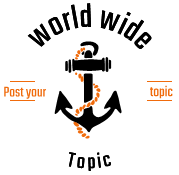The increasingly widespread use of new technologies is not without having an impact on health, mainly when there is misuse. Thumb pain related to texting, through sleep disorders to addiction, here are some “technology diseases” as well as tips to avoid them.
Pain in thumbs, wrists or elbows
Formerly the prerogative of factory workers or athletes, injuries caused by repetitive movements are becoming very common among people who write a lot of texting (thumb pain) or who spend the day typing on a keyboard (wrist, elbow, or shoulder pain).
A bad position is often the trigger. When the problem is related to the use of a computer, it must be ensured that the office items (chair, keyboard, and screen) are ergonomically placed to avoid prolonged tensions on your muscles and tendons. We also recommend taking regular breaks and taking the opportunity to do some stretching.
To prevent “texting inches”, failing to stop texting completely, it is best to slow down the pace by writing more slowly and try to vary the fingers used for texting (for example alternating between thumbs and index fingers).
Sleeping disorders
Using your tablet or smartphone in bed is an increasingly common cause of sleep disorders. The use of technology at bedtime is problematic for several reasons. First, the stimulation caused by technology prevents the brain from going into sleep mode. In addition, the light emitted by the screens prevents the production of melatonin by the brain. Melatonin is a hormone that plays a key role in triggering sleep. Finally, the use of technology often postpones sleeping. By going to bed later, the body will readjust its internal clock to that later bedtime and it will become increasingly difficult to return to its “normal” bedtime.
What to do? First rule, leave the technologies outside the bedroom (including the TV)! Then, start a bedtime routine: at least an hour before going to sleep, stop all stimulating activity, and do sleep-friendly activities like taking a hot bath or shower, reading, or listening to quiet music. Dim the light in the bedroom and close it at the first sign of falling asleep. If sleep is slow to come, do not lie down for more than 20 minutes, but sit in the dark while waiting for signs of falling asleep (eg. by reading or listening to soft music). People who “persist” in waiting for sleep are more likely to develop lasting sleep problems.
Artificial vision syndrome
Artificial vision syndrome is common in people who look at screens for long hours, especially those on a computer or tablet. It is eye fatigue that can be accompanied by headache, blurred vision, dry eyes, or neck or shoulder pain. Sometimes other factors aggravate the symptoms, for example vision problems not (or badly) corrected by corrective lenses, poor lighting or problems with postures.
To avoid eye strain, make sure that the room where you are looking at the screen is properly lit and that the lighting does not cause reflections on the screen. Make sure that the screen is in a position that allows you to have a natural position of the head of the shoulders and the neck (at eye level). Rest your eyes regularly with the 20-20-20 rule: every 20 minutes or so, move your gaze to an object that is at least 20 feet (7m) away for at least 20 seconds.
If dry eyes are bothersome, you can use artificial tears. Consult your pharmacist to find out which ones are right for you. Finally, if you wear corrective lenses, have your eyes checked regularly to make sure your eyesight hasn’t changed. Poorly fitting glasses are an often overlooked source of headaches.
Mobidependence
Mobidependence (nomophobia in English) is defined as a state of craving that manifests itself when a person does not have access to his mobile phone. For most of us, forgetting our home phone will have no consequences other than a feeling of frustration, but for some people it can trigger a major anxiety attack. In such a case, the person should consider discussing it with a psychologist, as it is possible that they are suffering from an anxiety disorder which could benefit from the advice of a professional.
Internet or online games addiction
We are talking about abnormal behavior here, not just wasting a few hours every night surfing the Net or playing League of Legends! For the person to be declared “dependent”, their use of the media must be so important that it has an impact on their daily life. Such addiction is rare, but it requires nursing dissertation help management by a health care professional, as it likely underlies other problems such as low self-esteem, depression, or anxiety.
Cyberchondria
The human body is a wonderful machine that does its job very well most of the time. On the other hand, it sometimes turns a little less round and manifests it by different symptoms. In most cases, these symptoms are mild and go away on their own. But access to thousands if not millions of pages of medical information (not always written by professionals) can quickly take you into a spiral that will make you believe that your headache is not just caused by fatigue, but you must have a brain tumor! Cybercondria is hypochondria 2.0., That is to say the propensity to think that any symptom cannot be mild, but is surely a sign of a serious illness. The best way to avoid this trap, it’s about talking to a healthcare professional, like your pharmacist, about your symptoms, rather than searching the Internet. Your pharmacist is easy to access and can help you determine if a doctor’s visit is necessary or not.
New technologies have revolutionized our lives, but they are not completely harmless. If you, or someone close to you has an unhealthy relationship with your smart devices, it may be time to talk about it with someone!


